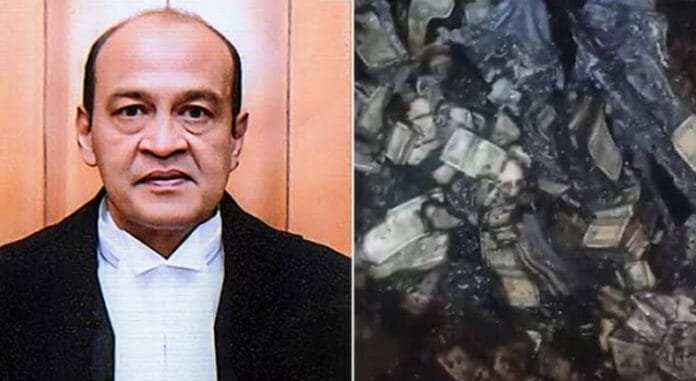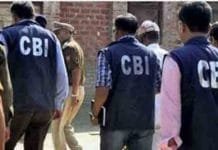In a move that signals a historic moment in Indian judicial oversight, the Central Government has initiated formal impeachment proceedings against Justice Yashwant Verma, currently serving at the Allahabad High Court. The action follows a serious corruption-related controversy involving the recovery of crores worth of burnt currency notes from his official residence during his tenure at the Delhi High Court.
Signatures Being Collected for Lok Sabha Impeachment Motion
According to highly placed sources, the Parliamentary Affairs Ministry has confirmed that the impeachment motion will be introduced in the Lok Sabha. For such a motion to be accepted, support from at least 100 MPs is required. Reports indicate that a significant number of Members of Parliament have already signed the document, and the target figure is expected to be crossed imminently.
Had the motion been initiated in the Rajya Sabha, only 50 signatures would have sufficed. However, the decision to route it through the lower house demonstrates the gravity of the issue and the government’s intent to anchor it within a more populous representation.
Parliamentary Affairs Minister Rijiju Confirms Impeachment in Monsoon Session
Speaking to the media, Parliamentary Affairs Minister Kiren Rijiju clarified that the impeachment motion against Justice Verma will be formally tabled during the upcoming Monsoon Session, which commences on July 21. Rijiju emphasized that the government is in active discussions with opposition parties to ensure bipartisan support, noting that the matter is rooted in corruption allegations and should not be politicized.
“This is not a political issue. This is a matter of institutional integrity. We are confident that all parties will support this move,” Rijiju stated.
Background: Cash Scandal at Justice Verma’s Official Residence
The roots of this impeachment motion trace back to a shocking incident during Justice Verma’s posting at the Delhi High Court. During a routine firefighting operation, officials discovered a large cache of charred currency notes hidden within the walls and containers of the judge’s official bungalow.
Following this discovery, a Supreme Court-appointed committee was constituted to investigate the matter. The committee concluded that the source and storage of the cash were inconsistent with legal and ethical norms, and violated judicial conduct protocols. This development led to Justice Verma’s transfer back to the Allahabad High Court, pending further review.
Impeachment Motion: Constitutional Process Initiated
Under Article 124(4) of the Indian Constitution, a judge of the High Court or Supreme Court can only be removed through an impeachment process based on proven misconduct or incapacity. The process requires:
A motion signed by at least 100 Lok Sabha MPs or 50 Rajya Sabha MPs
An inquiry committee set up to examine the allegations
A two-thirds majority vote in both Houses of Parliament
With the initial phase of signature collection already underway, the process has moved into a decisive and irreversible stage.
Opposition Cooperation Expected Amid Corruption Allegations
Despite growing political polarization, the issue has found common ground across party lines. Sources confirm that several key opposition parties, including the Congress, Trinamool Congress, and Aam Aadmi Party, have been approached for support, and initial responses indicate a willingness to collaborate.
Given the seriousness of the allegations and the Supreme Court committee’s findings, even those usually opposed to the ruling government are reportedly inclined to support the motion.
Judicial Accountability in the Spotlight
This impeachment marks a rare moment in India’s democratic history, as judicial impeachments are extremely uncommon. Only a handful of judges have faced similar proceedings, and fewer have seen the process reach Parliament’s floor.
The case has sparked a wider public discourse about transparency within the judiciary, and whether the current oversight mechanisms are sufficient. Several legal scholars and former judges have weighed in, calling the move a necessary check on institutional power.
Supreme Court Committee’s Verdict: Shocking Discrepancies Uncovered
The Supreme Court committee, which conducted a thorough probe into the incident, reportedly found incriminating discrepancies in Justice Verma’s financial disclosures. Sources close to the investigation allege:
Unreported assets and bank accounts
Improper handling of case files during his Delhi tenure
Suspicious property acquisitions through third-party proxies
Although the full report remains classified, its contents were deemed serious enough to warrant immediate action.
Implications for the Judiciary and Political Landscape
The impeachment of a sitting judge sends a powerful message across India’s judicial system. It underscores the idea that no office-bearer is above accountability, and that democratic institutions must work in cohesion to safeguard public trust.
For the government, particularly the BJP-led NDA, this step may also be seen as an attempt to demonstrate a zero-tolerance stance on corruption. However, opposition parties are cautious and stress the need for a non-partisan, fair inquiry, lest the process be viewed as a political vendetta.
Public Reaction and Media Coverage
Public sentiment appears largely in favor of the motion. Social media platforms have been flooded with hashtags like #JusticeVermaScandal, #BurntCashControversy, and #ImpeachmentInParliament.
News channels and digital media are providing extensive coverage, with debates focusing on the scope of judicial immunity, systemic corruption, and legislative action.
Conclusion: Parliament Gears Up for Landmark Decision
With the Monsoon Session poised to begin, all eyes will be on Parliament as it prepares to discuss one of the most consequential motions in recent legislative history. The outcome of this impeachment motion will not only determine the fate of Justice Verma but could also reshape public expectations of judicial accountability in India.
As the impeachment motion against Justice Yashwant Verma inches closer to becoming a constitutional milestone, the government appears committed to pushing it through, backed by legal precedents, public support, and multi-party consensus.
















